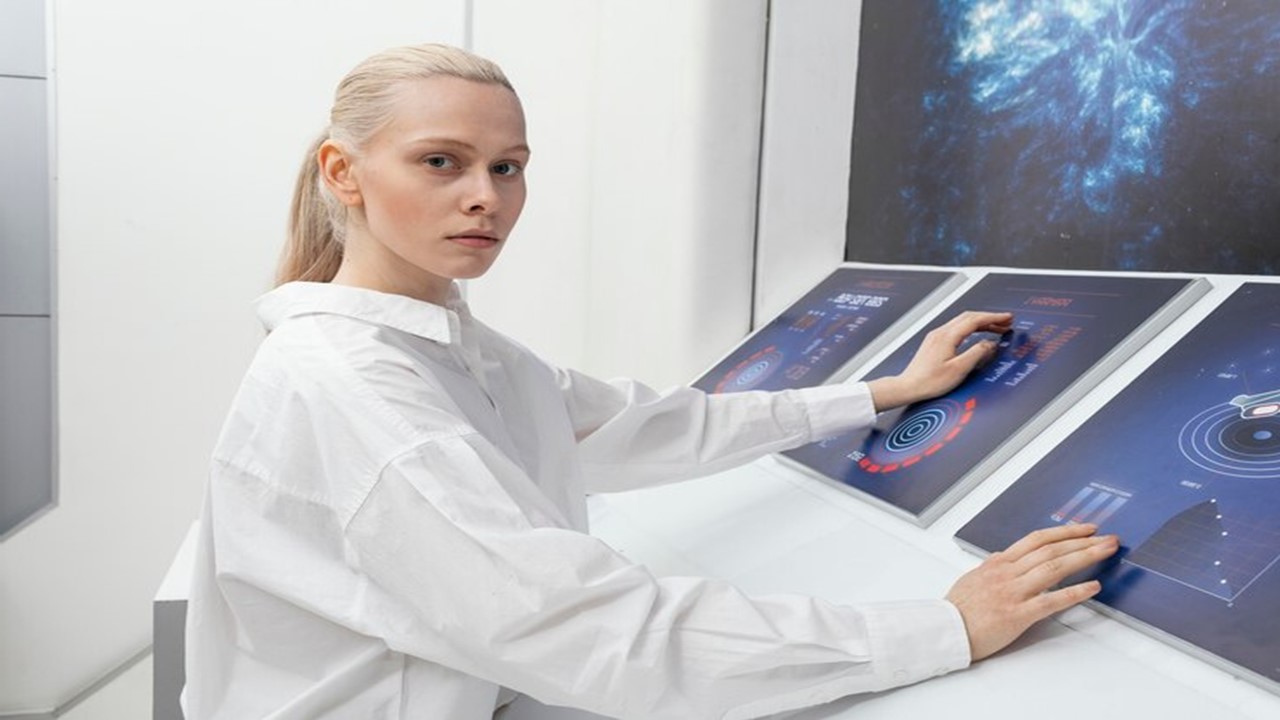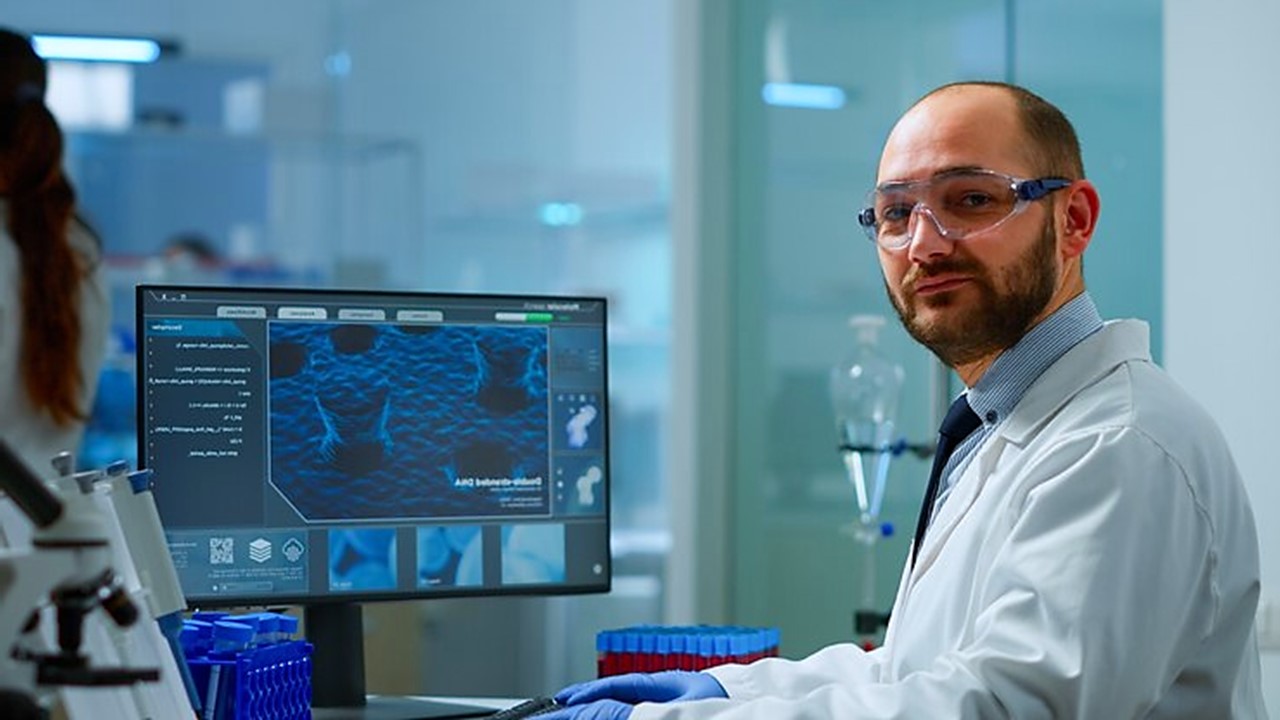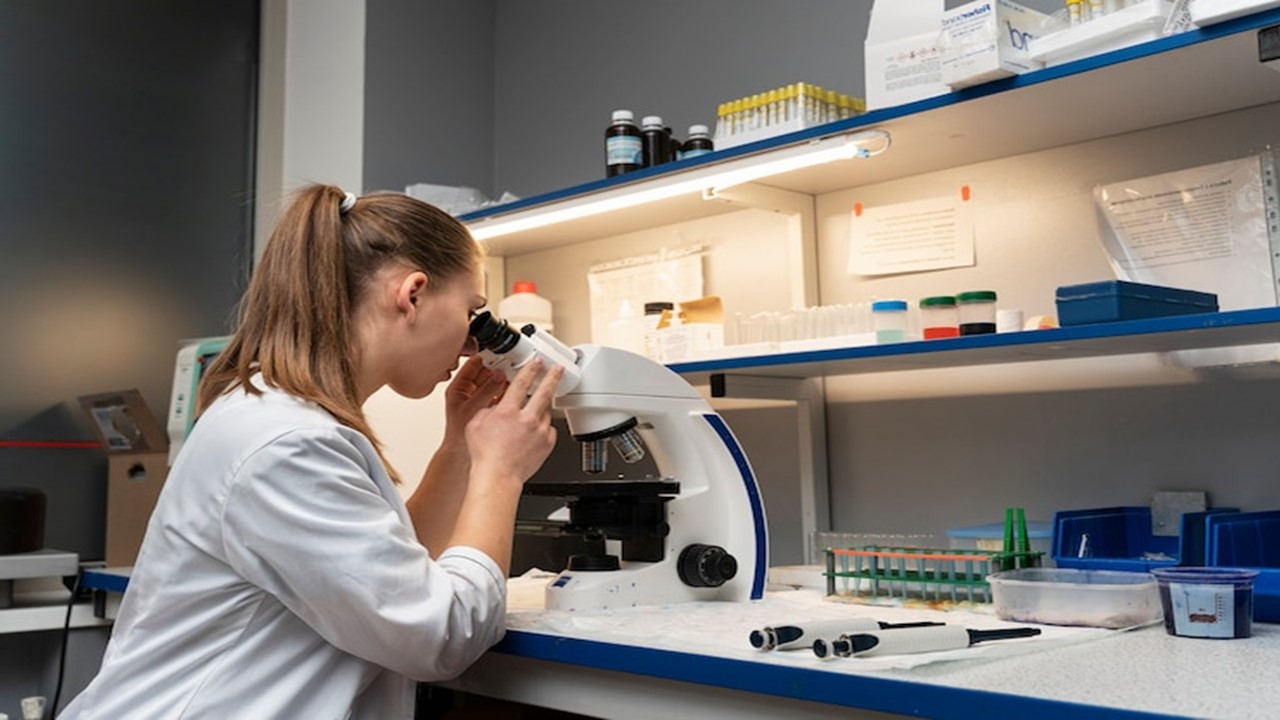In the realm of drug development, innovative technologies are being used to speed up the identification of drug targets and to enhance the design and screening of potential drug candidates. For example, machine learning algorithms can analyze large data sets to identify potential targets for drug development, while CRISPR gene editing technology can be used to create more accurate models for drug testing.
Similarly, advances in healthcare technology are also enabling more personalized and precise treatments for patients. Wearable devices and mobile health apps can collect real-time data on patients’ health, enabling physicians to monitor their condition more closely and make more informed treatment decisions. Telemedicine technologies are also making it possible for patients to receive medical care remotely, reducing the need for in-person visits and improving access to care for people in remote or underserved areas.
Before we dive into the technologies that are revolutionizing medical research and improving patient care and quality of life, let’s tackle the challenges that confront the clinical research process and the impact of technology, in general, in addressing the challenges of clinical trials.
Hurdles in Healthcare Research
Clinical trials are a critical component of the drug and clinical intervention development process, as they provide valuable information on the safety and efficacy of treatments. Each phase of a clinical trial has a specific purpose, and they are designed to ensure that the clinical outcome of the treatment is safe and effective for general use.
However, researchers designing clinical trials face several significant challenges that can affect the trial’s success. One of the most significant challenges is recruiting and retaining participants. Finding individuals who meet the eligibility criteria and are willing to participate can be difficult, particularly for rare diseases. Retaining participants throughout the trial can also be a challenge, as some may drop out due to adverse events, lack of interest, or other factors.
Another significant challenge is compliance with regulations and rules. Clinical trials must adhere to strict guidelines to protect participants’ safety and ensure that the results are reliable and accurate. Researchers must navigate complex regulatory frameworks and meet ethical and legal standards throughout the trial.
Data management is another crucial challenge in clinical trials. Collecting, storing, and analyzing large amounts of data can be overwhelming, and researchers must ensure that the data is accurate and secure. They must also be able to interpret the data correctly to draw meaningful conclusions about the treatment’s safety and efficacy.
Lack of participant diversity is another challenge that can affect the generalizability of clinical trial results. If the study population is not representative of the broader population, the results may not be applicable to everyone who could benefit from the treatment.
Finally, the COVID-19 pandemic has presented significant challenges for clinical trials. Many trials were paused or terminated completely, delaying the development of new clinical treatments. Remote and decentralized clinical trials have become more prevalent, and researchers have had to adapt quickly to ensure that the trials continue to meet ethical and regulatory standards.
Appreciating the Transformative Power of Technology
The importance of adopting breakthrough technologies in clinical trials cannot be overstated, as they can address several key challenges and improve the efficiency and effectiveness of the trials. However, despite the potential benefits, the clinical trial sector has been slow to adopt these technologies. Although discussions about implementing new innovations have been ongoing for decades, the adoption rate has been relatively low.
In recent years, there has been a significant increase in technology supply, and regulations governing the use of breakthrough innovations have eased, paving the way for more widespread adoption. Increasing demand for technological innovation has also been fueled by concerns over rising costs, higher rates of trial failures, and the need for patient-centric trials.
Several breakthrough technologies can revolutionize clinical trials, including wearable technology, AI, big data analytics, synthetic biology, telemedicine, and mobile communication and apps. These technologies have the potential to address many of the key challenges faced by researchers and improve the patient experience.
One of the most significant benefits of breakthrough technologies is faster recruitment and better retention of participants. With the help of technology, researchers can identify eligible participants quickly and efficiently and provide them with the necessary tools and support to remain engaged throughout the trial. Additionally, patient data capture can be improved, enabling researchers to gather more accurate and reliable data.
Another significant benefit of technological innovation in clinical trials is access to non-traditional data sets. By collecting data from wearable technology, social media, and other sources, researchers can gain a more comprehensive understanding of patients’ health and behaviors. Remote patient monitoring is another technology that has the potential to revolutionize clinical trials, as it allows researchers to monitor patients’ health and collect data in real-time.
Lastly, the COVID-19 pandemic has brought several new challenges to clinical trials, which can be addressed with the help of breakthrough technologies. Decentralized trials, remote monitoring, and telemedicine can help researchers continue to conduct trials while ensuring the safety of participants and researchers. In summary, breakthrough technologies have enormous potential to transform clinical trials and improve the development of new treatments and interventions.
Retention Beyond Enrollment
Mobile communication technologies are rapidly advancing, providing many opportunities for their application in clinical trials. With the increasing adoption of mobile phones and tablets, mobile technologies can provide an effective way to communicate with potential trial participants, enabling rapid recruitment and retention of study participants.
Mobile communication can also be used for remote monitoring of participants, providing researchers with real-time data on patients’ health and medical conditions. This can help reduce the need for frequent clinic visits and can improve the overall efficiency of the trial. Additionally, mobile communication can provide trial participants with access to educational materials, enabling them to better understand the trial and their role in it.
Electronic informed consent is another technology that can aid in recruitment by providing a streamlined and more convenient way for potential participants to provide informed consent. Electronic clinical outcome assessment tools can help improve the accuracy and consistency of data collected during clinical trials, reducing the risk of errors and improving the overall quality of the data.
Moreover, electronic data capture can simplify the process of data collection and management, allowing researchers to quickly and easily gather data from trial participants. This can help reduce errors and ensure that the data collected is accurate and consistent, which is critical for the success of a clinical trial.
Overall, the use of mobile communication technologies and other breakthrough technologies can help overcome some of the challenges faced by clinical trials, particularly in terms of patient recruitment and data management.
A Streamlined Data Gathering
Mobile devices, smartphone-based apps, and wearable medical technology have revolutionized patient data capturing, transforming the way data is gathered and analyzed. The benefits of wearable technology and mobile apps are numerous; they can continuously monitor patients’ health data and track the progress of the clinical trial in real-time. Furthermore, patients can provide data on their daily routines, including sleep and exercise patterns, which can significantly impact treatment outcomes. This real-time data collection enables doctors to quickly identify and respond to adverse effects, thereby improving patient safety.
Moreover, the use of machine learning algorithms can help to analyze large volumes of patient data and identify patterns that would have been challenging to detect otherwise. Such technologies can facilitate personalized treatments, which can lead to better patient outcomes.
To further improve patient data capture, organizations can employ the Internet of Things (IoT) devices, which can collect and transmit data to centralized data hubs, allowing clinical researchers to access it in real-time. Virtual reality (VR) and smart sensors also have great potential in capturing patient data, particularly in clinical trials requiring precise measurements, such as in ophthalmology or neurology.
Enhancing clinical trials through data capture can increase trial efficiency and effectiveness, leading to faster and more accurate results. By employing these technologies, researchers can streamline data collection, minimize errors, and accelerate the time to market for new treatments and interventions.
Top Priority Engagement – The Patient
In a patient-centric trial, the patient’s experience and feedback are prioritized, ensuring that the clinical trial is conducted according to the patients’ preferences and needs. This approach helps to keep patients engaged, which can result in better clinical outcomes. Additionally, this approach helps to reduce costs and increase efficiency.
Patient-centric trials require innovative technologies that allow patients to participate in clinical trials from the comfort of their homes. Wearables and mHealth have been effective in improving patient engagement and reducing the burden of in-person visits. These technologies can also facilitate remote patient monitoring, allowing doctors to track patient progress and quickly intervene if necessary.
Moreover, the use of telemedicine and virtual consultations can provide a more patient-centric approach to clinical trials. This technology enables patients to communicate with their physicians or study coordinators remotely, providing more convenience and reducing travel costs.
Furthermore, the use of patient-reported outcomes (PROs) is an essential element of patient-centric trials. PROs are questionnaires that patients fill out, providing valuable feedback on their symptoms, quality of life, and treatment outcomes. Electronic PROs, which are administered via mobile devices or web-based platforms, have been shown to improve data quality and compliance with study protocols.
Unquestionably, the use of breakthrough technologies has significantly contributed to the rise of patient-centric clinical trials, providing patients with greater accessibility and convenience, reducing costs, and enhancing the efficiency of clinical research.
The Significance of Real-Time
In addition to the benefits mentioned above, remote monitoring also provides the opportunity for real-time tracking and analysis of patient data, allowing researchers to adjust treatments and dosages based on patient responses. Furthermore, remote monitoring can increase the reach of clinical trials by allowing patients from different geographic locations to participate. This can be especially important for rare diseases or conditions that are more prevalent in certain areas.
The use of remote monitoring technologies can also improve the accuracy and reliability of data collected during clinical trials, reducing the potential for human error in data entry and analysis. Additionally, it can provide greater flexibility for patients who may have busy schedules or live far from the trial site. Patients can participate in the trial from the comfort of their own home, reducing the need for travel and the associated costs and inconveniences.
However, there are also challenges to implementing remote monitoring in clinical trials. These include ensuring the security and privacy of patient data, standardizing remote monitoring processes across different trials and research sites, and providing adequate training and support for patients and research staff. Despite these challenges, the potential benefits of remote monitoring make it a promising tool for improving clinical trial efficiency and patient outcomes.
Doing Trials The Non-Conventional Way
The advent of decentralized clinical trials (DCTs) has revolutionized the traditional clinical trial model by leveraging technology to conduct some or all aspects of the trial outside of a traditional clinical site. The use of telemedicine, electronic consent, wearable devices, and other innovative technologies have made it easier for participants to access trials, reduced the burden of site visits, and increased patient retention.
DCTs have the potential to significantly improve the efficiency and speed of clinical trials. By enabling remote patient monitoring, DCTs reduce the need for physical site visits, thereby minimizing patient travel and reducing the cost and time associated with clinical trial administration. Furthermore, decentralized trials can provide more accurate data as they can collect data in real-time from patients in their natural environments.
One major challenge of decentralized clinical trials is the need to ensure data security and privacy, as information is collected and transmitted electronically. Additionally, there is the challenge of ensuring that patients have the technical literacy required to participate in the trial. Training and support for both sites and participants are crucial in this regard.
Despite these challenges, decentralized clinical trials have been rapidly adopted by the pharmaceutical industry, especially in light of the COVID-19 pandemic, which has disrupted traditional clinical trials. With DCTs, researchers can continue to collect data while maintaining social distancing requirements and minimizing exposure risks.
In conclusion, decentralized clinical trials represent a significant shift from traditional clinical trials and have the potential to overcome many logistical challenges associated with patient recruitment, site visits, and data collection. While there are challenges to be addressed, the benefits of DCTs are clear, and they are expected to become an increasingly important tool in the clinical trial toolbox.
The Age of Wearables
The integration of wearable medical technology and telehealth has the potential to significantly improve the efficiency and accuracy of clinical trials. Wearable devices can collect continuous data on a patient’s vital signs, activity levels, and other physiological metrics, providing researchers with a wealth of real-time data that was previously unavailable.
Moreover, the use of telehealth and wearable technology can expand clinical trial access to a broader population. Patients can participate in clinical trials from the comfort of their homes, reducing the need for frequent in-person visits to clinical sites. This technology can be particularly beneficial for patients with limited mobility, those living in remote areas, and those with chronic diseases.
Despite the many benefits of wearable medical technology and telehealth, there are still challenges to be addressed. The accuracy and reliability of wearable devices remain a concern, as does the issue of data privacy and security. Additionally, there is a need for standardization and validation of wearable devices across different clinical trials to ensure consistency in data collection.
In the future, the integration of artificial intelligence and machine learning into wearables and telehealth platforms may further enhance the capabilities of clinical trials. By leveraging these technologies, researchers can more accurately predict patient outcomes and tailor treatments to individual patients.
The increasing adoption of wearable medical technology and telehealth in clinical trials represents an exciting opportunity for the future of medicine. A slew of challenges might remain, but the benefits of these technologies are clear, and the continued development and improvement of wearables will undoubtedly shape the future of clinical trials.
Trajectory of Tomorrow
In recent years, clinical trials have undergone significant advancements owing to innovative and pioneering technology. As a response to the COVID-19 pandemic, studies are now becoming decentralized and integrating more remote components, resulting in rapid changes in the clinical trial environment. Additionally, pharmaceutical firms and biotechnology companies are increasing their investment in big data analytics and technologies that utilize artificial intelligence and machine learning capabilities, transforming research and development and cutting costs. Thus, it is imperative to adopt new technologies as they are critical to the future of clinical research.
Subscribe
to get our
LATEST NEWS
Related Posts

Clinical Operations
Supervised Learning: Harnessing Data to Revolutionize Patient Care
As healthcare enters a new era, the integration of ML promises to revolutionize oncology and medicine.

Clinical Operations
The Interplay of Public and Private Sectors in Pharmaceutical Innovation
A delicate balance between public and private investments shapes the pharma R&D landscape.
Read More Articles
Synthetic Chemistry’s Potential in Deciphering Antimicrobial Peptides
The saga of antimicrobial peptides unfolds as a testament to scientific ingenuity and therapeutic resilience.
Appreciating the Therapeutic Versatility of the Adenine Scaffold: From Biological Signaling to Disease Treatment
Researchers are utilizing adenine analogs to create potent inhibitors and agonists, targeting vital cellular pathways from cancer to infectious diseases.












